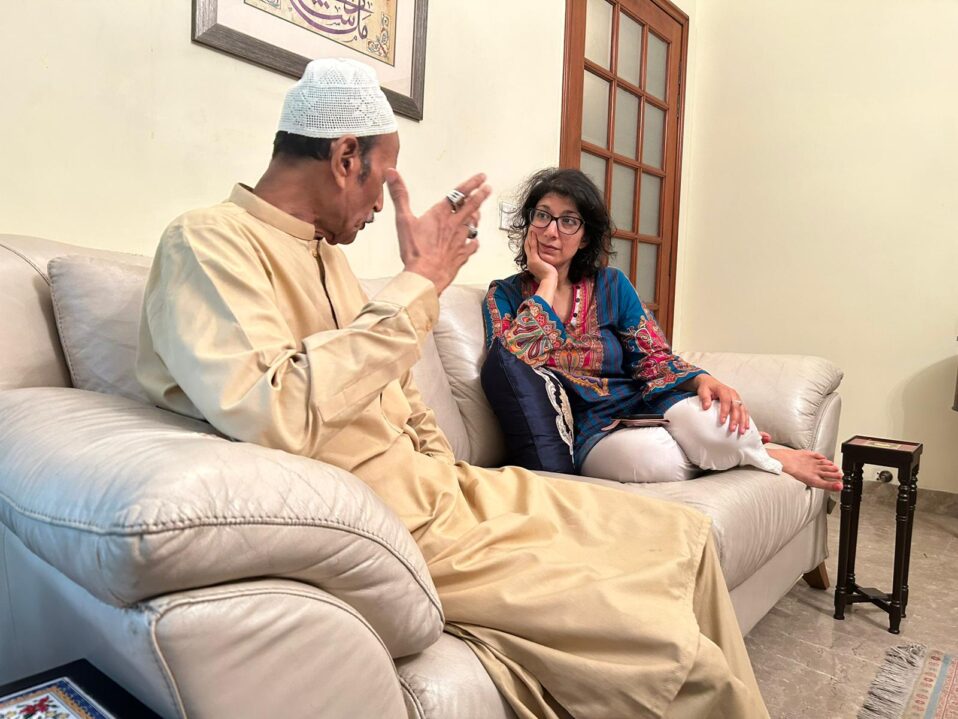Early this summer, we supported the launch of a new, transformative project in Lahore, Pakistan. “Healing Khayaal” follows the preeminent family of an ancient Islamic traditional musical practice as they engage with a cohort of apprentices to continue their practice and explore how traditional music and teaching methods can heal mind and spirit. (Pictured: Dr. Homayra Ziad and Ustadh Naseer-ud-din Saami, the living master of Khayaal.)
About the Project
This endeavor centers around the work of Pakistani vocalist and spiritual teacher Ustadh Naseer-ud-din Saami, the living master of Khayaal, who traces his lineage back to the foundation of the now-rare tradition in the 13th century. Khayaal (meaning imagination or fantasy) is a musical practice known for its flexibility over its 49-note scale structure. Traditionally, masters of the form were also held as traditional healers. Over the past eighty years, the acceptance of this form to heal mind, spirit and body has been slowly forgotten.

Healing Khayaal brought seven students (Aniyat Hasan, Hasan Raza, Anusheh Khan, Saad Sultan, Syed Misbah Uddin, Roohal Jhokio and Ejaz Ufaq) with varying degrees of personal experience singing Khayaal to Lahore for an intensive three-month residency with Ustadh Saami and his sons. The residency space, now affectionately known in Lahore as “The Khayaal Room,” has been a vibrant place of learning and growth where students engage with masters to gain a deeper knowledge of the form and of themselves.
Our Partners
The project was launched in partnership with Dr. Homayra Ziad of Johns Hopkins University. She created a questionnaire at the start of the project asking each apprentice to assess their own emotional baseline. Additional interviews were conducted with each participant via zoom. Midway through the residency, qualitative outcomes have shown every participant with positive dramatic shifts in their well-being and emotional attitudes often pointing to moments of incredible personal insight and healing. Each apprentice reflected on the process of finding their voice in class and establishing steadiness of voice, and how that has positively impacted their relationships, ways of thinking, and personal expression outside of class.
This work was conceived with Ustadh Saami and his student, the beloved Pakistani vocalist Zeb Bangash, who has been instrumental in managing and supporting the endeavor. With the project three-fourths complete, we are excited to delve into the findings and let you know the outcomes of this work in the coming months. Watch this video of Zeb on the project and its impact:



